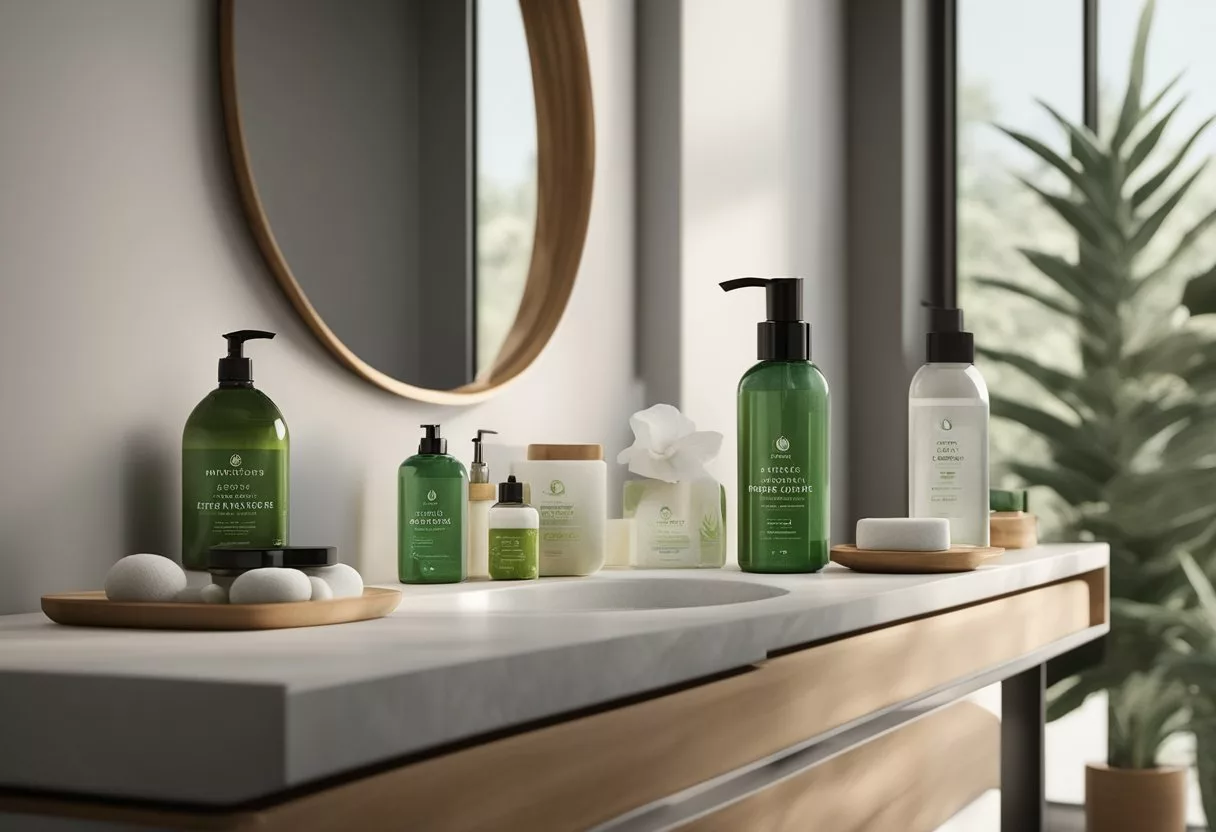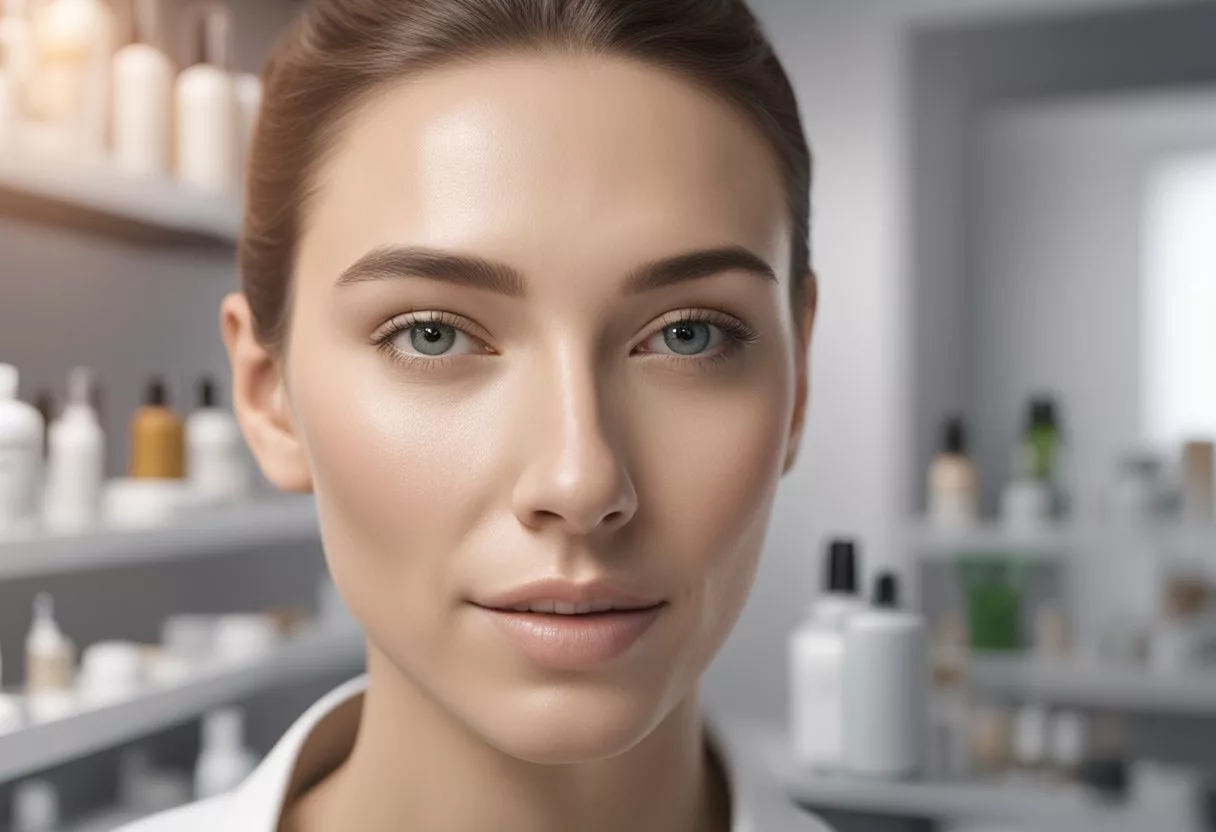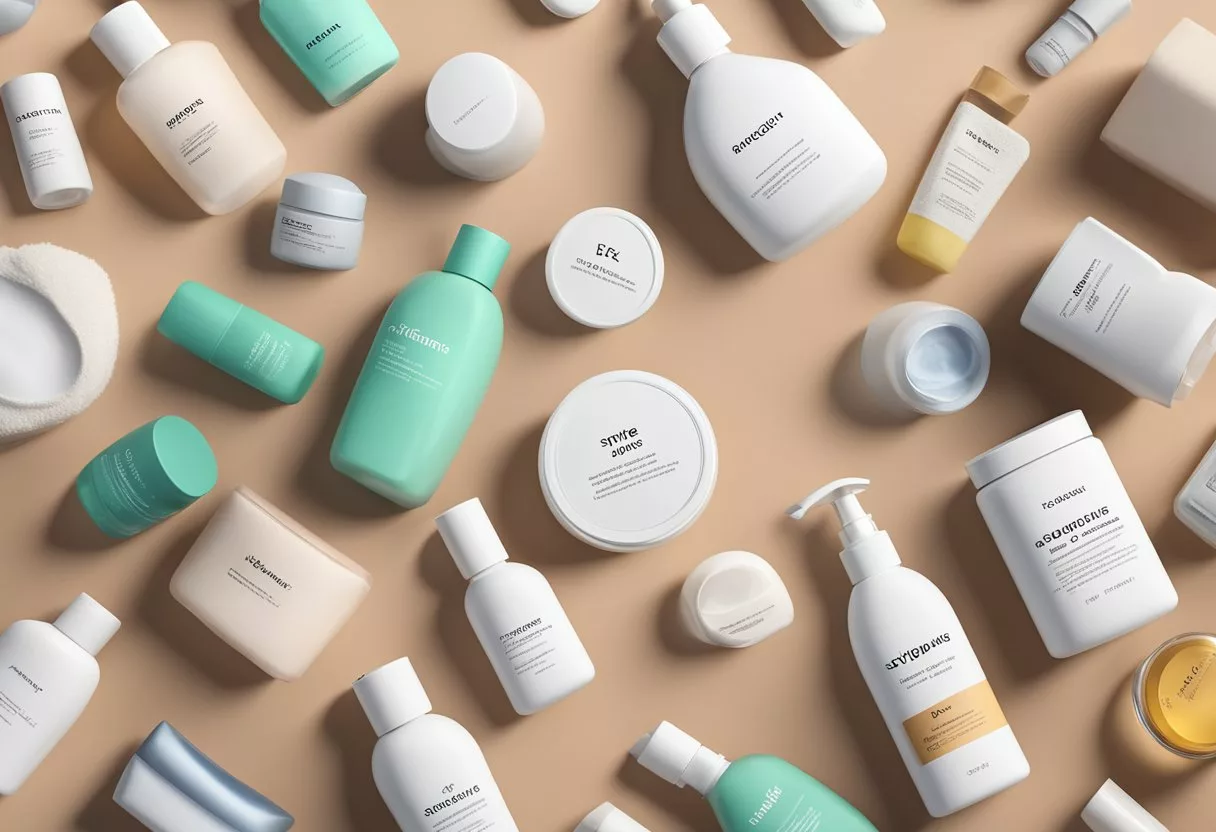Acne is a common skin condition that affects millions of people worldwide. It occurs when hair follicles become clogged with oil and dead skin cells, resulting in pimples, blackheads, and whiteheads.
Acne can appear on various parts of the body, including the face, neck, chest, back, and shoulders. While it is most common among teenagers, it can affect people of all ages.
Understanding Acne is essential to manage the condition effectively. Acne can be a frustrating and embarrassing condition, and it can impact a person’s self-esteem and confidence.
Several factors contribute to the development of acne, including genetics, hormones, stress, and certain medications. It is important to know that acne is not caused by poor hygiene or eating greasy foods.
Key Takeaways
- Acne is a common skin condition that affects people of all ages.
- Acne is caused by clogged hair follicles and can appear on various parts of the body.
- Understanding the causes and contributing factors of acne is crucial to managing the condition effectively.
Understanding Acne

Acne is a common skin condition that affects millions of people worldwide, and it can have a significant impact on self-esteem and quality of life. Understanding the causes and types of acne is essential to effectively manage and treat the condition.
Causes of Acne
Acne occurs when the hair follicles become clogged with oil and dead skin cells, leading to the formation of comedones. Excess sebum production, hormonal changes, and bacteria are all factors that can contribute to the development of acne.
During puberty, hormonal changes can cause an increase in sebum production, making teenagers more susceptible to acne. However, acne can also occur in adults, particularly women, due to hormonal changes during pregnancy or menstrual cycles.
Types of Acne
There are several types of acne, including whiteheads, blackheads, papules, pustules, nodules, and cysts. Whiteheads and blackheads are non-inflammatory acne, while papules, pustules, nodules, and cysts are inflammatory acne.
Whiteheads occur when the follicle is completely blocked, while blackheads occur when the follicle is only partially blocked. Meanwhile, papules, pustules, nodules, and cysts occur when the follicle becomes inflamed due to bacteria and excess sebum production.
Acne Across the Lifespan
While acne is most commonly associated with teenagers, it can affect people of all ages. Teenage acne usually lasts for five to 10 years, but adult acne can persist into a person’s 40s. Women are more likely than men to experience adult acne due to hormonal changes during pregnancy or menstrual cycles.
Diagnosis and Professional Care
When to See a Dermatologist
While mild acne can be treated with over-the-counter products, severe acne may require professional care. A dermatologist can help diagnose and treat acne, as well as provide advice on how to prevent future breakouts.
It is recommended to see a dermatologist if acne is severe, causing scarring, or if it is not responding to over-the-counter treatments.
According to the FDA, some acne treatments may have dangerous side effects, so it is important to seek professional care before using prescription medications.
Clinical Assessments
A dermatologist will assess the severity of acne by examining the type and number of lesions present on the skin. This may include blackheads, whiteheads, papules, pustules, nodules, and cysts.
The severity of acne is classified as mild, moderate, or severe, based on the number and type of lesions present.
In addition to diagnosing acne, a dermatologist will also check for other skin conditions, such as skin cancer. This is important because some acne medications, such as topical retinoids, can increase the risk of sunburn and skin cancer.
Treatment plans will vary depending on the severity of acne and may include a combination of topical and oral medications. It is important to follow the dermatologist’s instructions carefully to avoid further damage to the skin. If scarring occurs, there are treatments available to reduce the appearance of scars.
Acne Treatments
Acne is a common skin condition that affects millions of people worldwide. Fortunately, there are several effective treatments available that can help reduce the appearance of acne and prevent future breakouts. In this section, we will discuss some of the most popular acne treatments available today.
Over-the-Counter Solutions
Over-the-counter acne treatments are a popular first-line option for people with mild to moderate acne. These treatments typically contain one or more active ingredients, such as benzoyl peroxide or salicylic acid, which work by killing bacteria, reducing inflammation, and unclogging pores.
Benzoyl peroxide is a powerful acne-fighting ingredient that is available in many different forms, including creams, gels, and washes. It is particularly effective at killing the bacteria that cause acne and reducing inflammation.
Meanwhile, salicylic acid is another popular acne-fighting ingredient that works by exfoliating the skin and unclogging pores. It is often found in acne washes and toners and can be used to treat both acne and blackheads.
Prescription Medications
For people with more severe acne, prescription medications may be necessary. Oral antibiotics, such as tetracycline and doxycycline, are often prescribed to help reduce inflammation and kill bacteria.
Topical retinoids, such as tretinoin and adapalene, are also commonly used to treat acne by unclogging pores and reducing inflammation.
Isotretinoin, also known as Accutane, is a powerful oral medication that is reserved for people with severe acne that has not responded to other treatments. It works by reducing the size of the sebaceous glands, which are responsible for producing oil in the skin.
Hormonal treatments, such as birth control pills and spironolactone, may also be effective for women with acne that is related to hormonal imbalances.
Advanced Treatments
For people with deep acne scars or keloid scars, advanced treatments such as chemical peels, photodynamic therapy, and injections may be necessary. These treatments work by removing the top layer of skin or stimulating collagen production to help reduce the appearance of scars.
While there are many effective treatments available for acne, it may take several weeks or months to see results. It is also important to follow a consistent skincare routine and avoid picking or squeezing acne lesions, as this can lead to scarring and further breakouts.
Lifestyle and Home Remedies

Acne is a common skin condition that can be treated through lifestyle and home remedies. These remedies can help reduce the severity of acne and prevent future breakouts. Here are some lifestyle and home remedies that can help:
Dietary Considerations
Diet can play a role in acne. Some studies suggest that high-glycemic-index foods, dairy products, and saturated and trans fats may worsen acne. On the other hand, some studies suggest that consuming foods rich in omega-3 fatty acids, such as fish, may help reduce inflammation and improve acne.
Stress Management
Stress can trigger acne or make it worse. Stress management techniques such as exercise, meditation, and deep breathing can help reduce stress levels and improve acne.
Basic Skin Care
Basic skin care can help prevent acne. It is important to cleanse the skin gently twice a day and avoid scrubbing the skin too hard.
Avoid using harsh soaps, alcohol-based products, and oil-based cosmetics, which can clog pores and worsen acne. Use non-comedogenic and oil-free products instead.
It is also important to protect the skin from the sun. Use a broad-spectrum, oil-free sunscreen with an SPF of at least 30.
In addition, it is important to control oil production on the skin. Use oil-free moisturizers and avoid touching the face with the hands, which can transfer oil and bacteria to the skin.
Preventing Acne Scars and Pigmentation

Acne scars and pigmentation can be difficult to treat, so it is important to take steps to prevent them from occurring in the first place. This section will cover some strategies for minimizing skin damage and preventing scarring.
Minimizing Skin Damage
One of the most important steps in preventing acne scars and pigmentation is to minimize skin damage.
This can be done by avoiding picking at acne lesions, which can cause redness, swelling, and scarring. It is also important to avoid applying too much pressure or scrubbing too hard when cleansing the skin. This can cause irritation and damage to the skin, which can lead to scarring and pigmentation.
Another way to minimize skin damage is to avoid using harsh or abrasive skin care products. Products that contain alcohol, fragrances, or other irritants can cause damage to the skin, which can lead to scarring and pigmentation.
Scar Prevention Strategies
There are some strategies that can be used specifically to prevent scarring. One of the most effective strategies is to treat acne lesions as soon as they appear. This can help prevent the development of deep, inflamed lesions that are more likely to cause scarring.
Topical treatments such as benzoyl peroxide, salicylic acid, and retinoids can be effective for treating acne and preventing scarring.
In addition to treating acne lesions, it is important to protect the skin from the sun. Exposure to the sun can cause damage to the skin, which can lead to scarring and pigmentation.
It is important to wear sunscreen with an SPF of at least 30 and to avoid spending too much time in the sun, especially during peak hours.
Finally, if scarring does occur, there are a variety of scar treatment options available. These include topical treatments such as silicone gels and sheeting, as well as more invasive treatments such as laser therapy and chemical peels.
It is important to speak with a dermatologist to determine the best treatment option for your specific type of scarring.
Psychological Impact of Acne

Acne is not just a physical condition, but it can also have a significant impact on an individual’s mental health. Acne can affect an individual’s self-esteem, social interactions, and emotional well-being. This section will discuss the psychological impact of acne and its effects on self-esteem and social and emotional challenges.
Effects on Self-Esteem
Acne can have a profound impact on an individual’s self-esteem. The appearance of acne can make an individual feel self-conscious and embarrassed, which can lead to a negative self-image. According to a study [1], acne can affect an individual’s self-esteem and body image, leading to a decrease in confidence and self-worth.
Acne can also cause an individual to feel unattractive, which can lead to feelings of inadequacy and depression.
Social and Emotional Challenges
Acne can also lead to social and emotional challenges. Individuals with acne may feel isolated and avoid social situations, leading to a lack of social support. The stigma associated with acne can also lead to feelings of shame and embarrassment.
According to a study [2], individuals with acne reported feeling ostracized from society due to the image of “perfect skin” portrayed by the media.
Moreover, acne can also lead to stress and anxiety. The fear of being judged or ridiculed due to acne can lead to social anxiety, which can cause an individual to avoid social situations. Stress can also exacerbate acne, leading to a vicious cycle of stress and acne.
Acne Myths and Misconceptions

Common Acne Myths
Acne is a common skin condition that affects many people. Unfortunately, there are many myths and misconceptions about acne that can make it difficult to understand and treat.
One of the most common myths is that acne is caused by dirt or poor hygiene. However, this is not true. Acne is caused by a combination of factors, including excess oil production, clogged pores, and inflammation. Dirt and poor hygiene can exacerbate acne, but they are not the root cause.
Another common myth is that chocolate and greasy foods cause acne. However, there is no scientific evidence to support this claim. While diet can play a role in overall skin health, there is no direct link between chocolate or greasy foods and acne.
Debunking Acne Misconceptions
It is important to understand the true causes of acne in order to effectively treat and prevent it.
One common misconception is that makeup causes acne. While certain types of makeup can clog pores and exacerbate acne, not all makeup does. It is important to choose non-comedogenic makeup and to thoroughly remove makeup before bed.
Another misconception is that acne is caused by steroid use. While steroids can cause acne as a side effect, not all cases of acne are related to steroid use. It is important to speak with a healthcare provider about any concerns regarding acne and steroid use.
Finally, there is a misconception that all acne is caused by comedones, or clogged pores. While comedones can contribute to acne, there are other types of acne as well, such as inflammatory acne. It is important to work with a healthcare provider to properly diagnose and treat acne based on its type and severity.
Frequently Asked Questions
What are the most effective treatments for acne?
There are several effective treatments for acne, including topical creams, oral medications, and lifestyle changes.
Topical treatments such as benzoyl peroxide and salicylic acid can help unclog pores and reduce inflammation. Oral medications such as antibiotics and isotretinoin may be prescribed for more severe cases of acne.
In addition, making lifestyle changes such as maintaining a healthy diet, reducing stress, and avoiding certain skincare products may also help improve acne symptoms.
How can I identify different types of acne?
There are several different types of acne, including whiteheads, blackheads, papules, pustules, nodules, and cysts. Whiteheads and blackheads are non-inflammatory acne, while papules, pustules, nodules, and cysts are inflammatory acne.
Identifying the type of acne is important for determining the most effective treatment.
What are the primary causes of acne?
Acne is caused by a combination of factors, including excess oil production, clogged pores, bacteria, inflammation, and hormonal changes.
Hormonal changes during puberty, menstrual cycles, and pregnancy can trigger acne, as can certain medications and medical conditions. Genetics, stress, and diet may also contribute to acne.
At what age does acne typically become more severe?
Acne can develop at any age, but it most commonly occurs during puberty when hormonal changes cause an increase in oil production.
Acne may become more severe during the teenage years, but it can also occur in adults. Women may experience acne flare-ups during their menstrual cycle or pregnancy.
What steps can I take to reduce or eliminate acne?
There are several steps you can take to reduce or eliminate acne, including maintaining a healthy diet, reducing stress, avoiding certain skincare products, and using topical treatments.
It is important to keep the skin clean and avoid touching the face, as this can spread bacteria and worsen acne symptoms.
How do pimples heal and what can speed up the process?
Pimples typically heal on their own within a few days to a week. But, there are several things you can do to speed up the healing process.
Applying a warm compress can help reduce inflammation and promote healing. Using topical treatments such as benzoyl peroxide or salicylic acid can also help speed up the healing process.
It is important to avoid picking at or squeezing pimples, as this can lead to scarring and further infection.